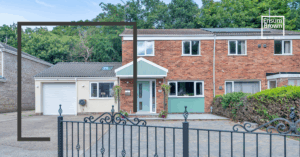With the rising cost of living, alongside escalating labour and material costs, many homeowners are asking: is it now more cost-effective to move than renovate? For years, the common wisdom has been that renovating is the cheaper option compared to selling up and buying a new home.
But with the impact of inflation, Brexit, and the ongoing Cost-of-Living Crisis, this assumption is being challenged by experts and homeowners alike.
Times Are Changing
Scottish property expert Paul Hilton from the listings portal ESPC has raised doubts about whether it’s still cheaper to improve than move. He points to how the Cost-of-Living Crisis, coupled with skyrocketing construction expenses, has fundamentally changed the equation.
“The costs of having work done have escalated wildly over the past five years,” Hilton said. “Renovations like extensions or loft conversions now cost tens of thousands of pounds more than they did a few years ago, putting them out of reach for many homeowners.”
Let’s explore the factors that might make moving more financially appealing than improving your current property.
Rising Costs of Materials and Labour
Even as inflation has eased since its peak in 2022, the Cost-of-Living Crisis continues to impact construction expenses. Key examples include:
- Pipes and fittings increasing by 17.6% over 12 months.*
- Bricks and tiles rising by 6%.*
- Labour costs surging, with electrician fees up 9.1%, locksmiths increasing by 7%, and roofers charging 4.9% more.**
Overall building costs rose by a staggering 19% in the last quarter.*** For context:
- The average building project jumped from £10,626 to £12,634.
- Kitchen fitting increased by 12%.
- Plastering costs surged by 16%.
For homeowners planning extensive refurbishments, these rising costs can quickly make renovating less appealing than relocating.
Making the Right Choice
The decision to move or improve during the Cost-of-Living Crisis ultimately depends on thorough research and clear calculations. Here are some steps to guide you:
- Consult Local Property Experts: Speak to estate agents to understand what’s available on the market and how much renovations might increase your property’s value.
- Weigh Non-Financial Factors: Consider the stress of living on a building site versus the challenges of property chains, viewings, and solicitors.
- Factor in the Long-Term Impact: Assess whether the costs of moving, including stamp duty and conveyancing, outweigh the escalating costs of materials and labour.
We’re Here to Help
Navigating the move-or-improve decision during a Cost-of-Living Crisis can feel overwhelming, but expert advice can make all the difference. If you’re unsure about your options, we’re here to provide tailored guidance to help you make the best decision for your circumstances.
Contact us today to discuss your next steps. And if you know someone who might find this article helpful, please share it with them.
*Building Materials and Components Statistics, Dept for Business and Trade, Oct, 2024.
** The most recent Trade Costs Index issued by listings service HaMuch.
***Checkatrade Home Improvement Index.
Important Links
Book a Valuation
Visit our Royston Facebook Page
Visit our Newmarket Facebook Page





